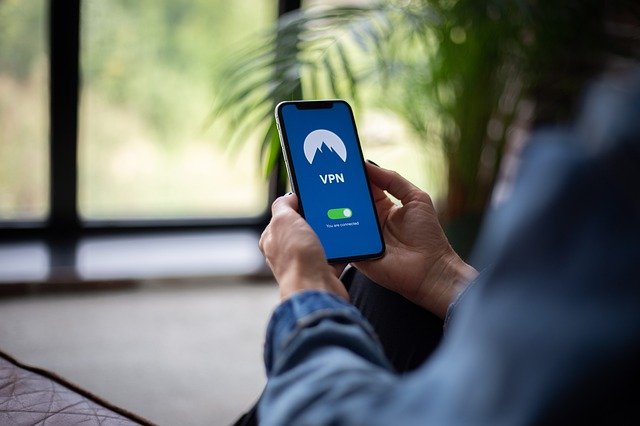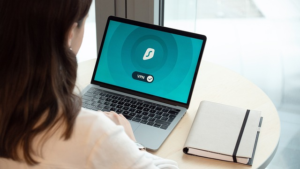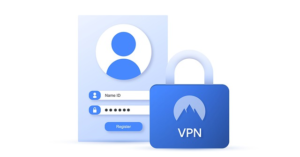
Editorial Note: Forbes Advisor may earn a commission on sales made from partner links on this page, but that doesn’t affect our editors’ opinions or evaluations.
If you’ve ever connected to a public Wi-Fi network, worried about how your data was being used by your internet service provider or simply wanted to unlock Netflix shows that aren’t available in your area, you should consider using a VPN, or virtual private network.
A VPN is a service that both encrypts your data and hides your IP address by bouncing your network activity through a secure chain to another server miles away. This obscures your online identity, even on public Wi-Fi networks, so you can browse the internet safely, securely and anonymously.
9 Reasons Why You Should Use a VPN
We’ve covered the basics. Here’s a closer look at why you should consider using a VPN.
1. Security on Public Wi-Fi
Public Wi-Fi is convenient but comes at the expense of security. When you’re answering emails at a local coffee shop or absent-mindedly scrolling through social media at the airport, someone may be tracking your online activity.
Using a VPN protects your data while you are on other networks, hiding your browsing history, banking information, account passwords and more from ill-intentioned internet strangers.
2. Data Privacy From Your Internet Service Provider
While connected to your home Wi-Fi, you are less likely to be attacked by strangers than on a public connection. However, your data is still vulnerable.
Your ISP or internet service provider—Comcast, Spectrum, Verizon or other company who you pay for Wi-Fi each month—can access all your internet data. Your ISP can see when, where and how you browse.
This data can be collected and sold to advertisers even if you’re using the “private” browsing function, and it can be dangerous in the wrong hands in the case of a data breach. A VPN can help obscure your IP address from your own ISP.
3. Data Privacy From the Apps and Services You Use
Your ISP isn’t the only potential liability that you’ve brought into your own home. Unfortunately, many of our favorite apps and internet services—most notably Facebook—have been called out for the way they’ve used the data of their users.
A VPN will prevent apps and websites from attributing your behavior to your computer’s IP address. It can also limit the collection of your location and browser history.
4. Data Privacy From Your Government
While many ISPs, apps and internet data hubs suggest they don’t sell your browsing data to governments, the information nonetheless finds its ways into their hands—even in the U.S.
Since 2013, when Edward Snowden first revealed that Verizon had been selling users’ internet and phone data to the NSA, Americans have become more aware of the different ways the government surveils and collects their data. Following the Snowden leaks, and subsequent outrage, several laws were enacted to curb government surveillance.
However, as recently as January of this year, the Defense Intelligence Agency bypassed a law demanding that government agencies produce warrants before compelling phone companies for their user data by paying third-party data brokers for that same data, according to the New York Times.
If you have qualms about governmental overreach, a VPN is a good investment in protecting your data.
5. Access to Any Content in Any Place
While Hulu may frown upon your use of a VPN to stream the latest Criminal Minds episode in a country where the content isn’t offered, this VPN usage is not illegal (in the U.S. and in most countries), and it helps provide a useful workaround to content restrictions.
VPNs spoof your location, making it seem as if you are browsing from another place. That means you can get your Criminal Minds fix even if it’s not available locally.
6. Security When Working Remotely
One benefit of a VPN is its data encryption features. Encryption, or putting data into a coded format so its meaning is obscured, allows you to keep confidential information safe.
If you are an individual thinking about investing in a VPN for your company, one benefit is that workers can connect to your office network and look at sensitive materials on their own devices while away from the office. As remote work seems a possibility even after the pandemic ends, a VPN is a helpful investment to keep confidential material safe off-site.
7. Easy to Use
While we’d all love to add more security to our lives, some security devices and processes seem like more effort than they are worth for those who are tech adverse. VPNs, however, are easy to use. Several providers have created intuitive and user-friendly interfaces that make installation and use available to non-techies.
8. Adaptable to Numerous Smart Devices
While many of us may first try a VPN on a company-loaned laptop, many VPN services also protect other smart devices such as your phones, tablets and desktop computers. Each VPN company may offer slightly different protection plans and have different capacities to protect different devices, but many providers offer plans that help keep you safe on multiple devices.
9. Smart Savings
If you are willing to put in a little research, a VPN can help you save money via its location spoofing capabilities. Many types of businesses, such as subscription services and airlines, offer the same amenities or products for different prices. If you change the appearance of your location to a place where services are offered cheaper, you can end up with big savings.
Limitations of VPNs
While a VPN is a great tool to help separate your location (and in many ways, you) from your data, it doesn’t obscure everything about you. If you take a Facebook quiz or like a post on Instagram, the app you are using while connected to the VPN is still able to use your behavior to tailor in-app ads and content. They might not know where you are browsing from, but they will still know what you are doing on their apps.
Similarly, if cookies are enabled on your computer, companies can follow you while you are on their site—and after. Your full data isn’t obscured with a VPN alone. Combining a VPN’s protection with Tor, an open-source tool that allows you to browse the web anonymously, and other security measures are necessary for a fuller security.
VPNs aren’t perfect tools. Like any computer program, they are susceptible to malware and online attacks. If infected, a VPN’s security benefits are nullified.
The likelihood of attacks and security breaches is increased by using a free VPN service. To recoup their business costs, “free” VPN services may sell user data or run ads that could be infected with malware. If your goal is to increase your data privacy, then investing in a paid VPN is your best bet.
Featured Partners
Monthly Pricing
$11.95/Month
Monthly Pricing
$8.32/Month
Monthly Pricing
$3.33/Month
Learn More
On Privateinternetaccess.com’s Secure Website
Global Legality Concerns
Beyond questions of security are questions of legality. If you happen to be based in or visiting a wide list of countries including Russia and China, VPNs are banned or highly regulated.
It’s important to know the laws of your country and any country you are visiting before using a VPN as well as to understand whether your VPN usage is being monitored by a government, thus nullifying its privacy benefits.
Frequently Asked Questions (FAQs)
Are VPNs really necessary?
If you are at all concerned with your data privacy, VPNs are an easy-to-use, reasonably priced security measure that gives you a base level of internet protection. While it may seem silly to protect your data when you aren’t doing anything “wrong” on the internet, even the most innocent among us do have data secrets online, such as sensitive passwords and financial information.
A VPN’s encryption and identity protection services are like a lock on a door, or in other words, a basic security measure that everyone should have.
Should my business use a VPN?
If you are a business with any confidential documents or a business that wants to allow employees to access your network remotely, then you should use a VPN.
Yes. VPNs are not foolproof and, like any software, can be susceptible to hacks and malware.
Several Android VPNs were hacked in February 2021, leaking data on millions of users. That’s because those VPN services tracked their users’ data in the first place.
To limit susceptibility to hacks and data leaks, ensure your VPN does not collect your data and that it provides adequate encryption. Free VPNs may not offer the best protection.
Is it illegal to use a VPN to watch Netflix?
No. While subscription services may frown upon using VPNs to stream, this use is not illegal. VPNs are, however, illegal in certain countries for any use at all. Check the restrictions of your country or the countries you are visiting before using a VPN.
Source: https://www.forbes.com/advisor/business/software/why-use-a-vpn/


